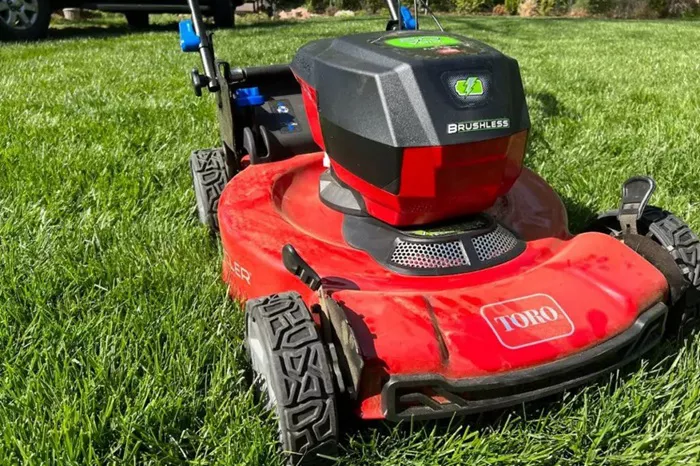Generators are essential investments for homeowners, businesses, and organizations looking to ensure uninterrupted power during outages. Whether for emergency preparedness, outdoor events, or remote operations, generators provide peace of mind and reliability. However, the cost of generators can vary significantly depending on the time of year, market demand, and other factors. Understanding when generators are cheapest can help buyers save money while still acquiring a high-quality product. This article explores the best times of year to purchase generators, the factors influencing their pricing, and tips for making a cost-effective investment.
Seasonal Trends in Generator Pricing
The price of generators tends to fluctuate throughout the year, driven by changes in demand, weather patterns, and market dynamics. Here are the key seasons and their impact on generator pricing:
Late Fall and Early Winter (October–December)
As temperatures drop and the threat of winter storms looms, demand for generators typically increases. Homeowners and businesses in regions prone to snowstorms, ice, and freezing temperatures often seek generators to prepare for potential power outages. This surge in demand can lead to higher prices and limited availability. Therefore, late fall and early winter are generally not the best times to buy generators if you’re looking for a bargain.
Winter (January–February)
During the peak of winter, generator prices often remain high due to ongoing demand. However, toward the end of the season, retailers may begin to offer discounts to clear out inventory in preparation for spring. If you can wait until late February, you may find deals on models that were popular during the winter months.
Spring (March–May)
Spring is one of the best times to purchase a generator. As the weather improves and the threat of winter storms passes, demand for generators decreases significantly. Retailers often reduce prices to attract buyers during this slower sales period. Additionally, manufacturers may introduce new models in the spring, leading to discounts on older inventory. This makes spring an ideal time to find high-quality generators at lower prices.
Summer (June–August)
Summer is another peak season for generator sales, particularly in regions prone to hurricanes, thunderstorms, and extreme heat. Homeowners and businesses preparing for hurricane season or summer storms often drive up demand, resulting in higher prices. If you live in an area with a high risk of summer power outages, it’s wise to purchase a generator before the season begins to avoid price hikes and shortages.
Early Fall (September–October)
Early fall can be a transitional period for generator pricing. While demand begins to rise as people prepare for winter, there may still be opportunities to find discounted models from the previous season. Retailers may also offer promotions to compete with holiday sales, making this a good time to shop for deals.
Factors Influencing Generator Prices
Beyond seasonal trends, several other factors can affect the cost of generators:
Market Demand: High demand during peak seasons or in the aftermath of natural disasters can drive up prices. Conversely, prices tend to drop during periods of low demand.
Fuel Type: Generators powered by different fuel types (e.g., diesel, propane, natural gas, or gasoline) vary in price. Diesel generators, for example, are often more expensive upfront but may offer long-term savings due to their efficiency and durability.
Size and Capacity: Larger generators with higher power output are generally more expensive than smaller, portable models. Buyers should carefully assess their power needs to avoid overspending on a generator that exceeds their requirements.
Brand and Features: Premium brands and generators with advanced features, such as automatic transfer switches or inverter technology, tend to cost more. However, these features can provide added convenience and reliability.
Sales and Promotions: Retailers often run sales during holidays like Black Friday, Cyber Monday, and Memorial Day. These events can be excellent opportunities to purchase generators at discounted prices.
Tips for Finding the Best Deals
Plan Ahead: If you know you’ll need a generator for an upcoming season, plan your purchase during the off-season to take advantage of lower prices.
Compare Prices: Shop around and compare prices from different retailers, both online and in-store. Don’t forget to check for manufacturer rebates or financing options.
Consider Refurbished Models: Certified refurbished generators can offer significant savings while still providing reliable performance. Be sure to purchase from a reputable seller and check the warranty terms.
Monitor Sales Events: Keep an eye out for seasonal sales, holiday promotions, and clearance events. Signing up for retailer newsletters or alerts can help you stay informed about upcoming deals.
Evaluate Long-Term Costs: While upfront cost is important, consider the long-term expenses of fuel, maintenance, and repairs when choosing a generator.
Conclusion
The cost of generators varies throughout the year, with the best deals typically available during the spring and early fall when demand is lower. By understanding seasonal trends and market dynamics, buyers can make informed decisions and save money on their purchases. Whether you’re preparing for winter storms, summer hurricanes, or simply seeking a reliable backup power source, timing your purchase strategically can help you secure a high-quality generator at an affordable price. With careful planning and research, you can ensure that you’re ready for any power outage without breaking the bank.

